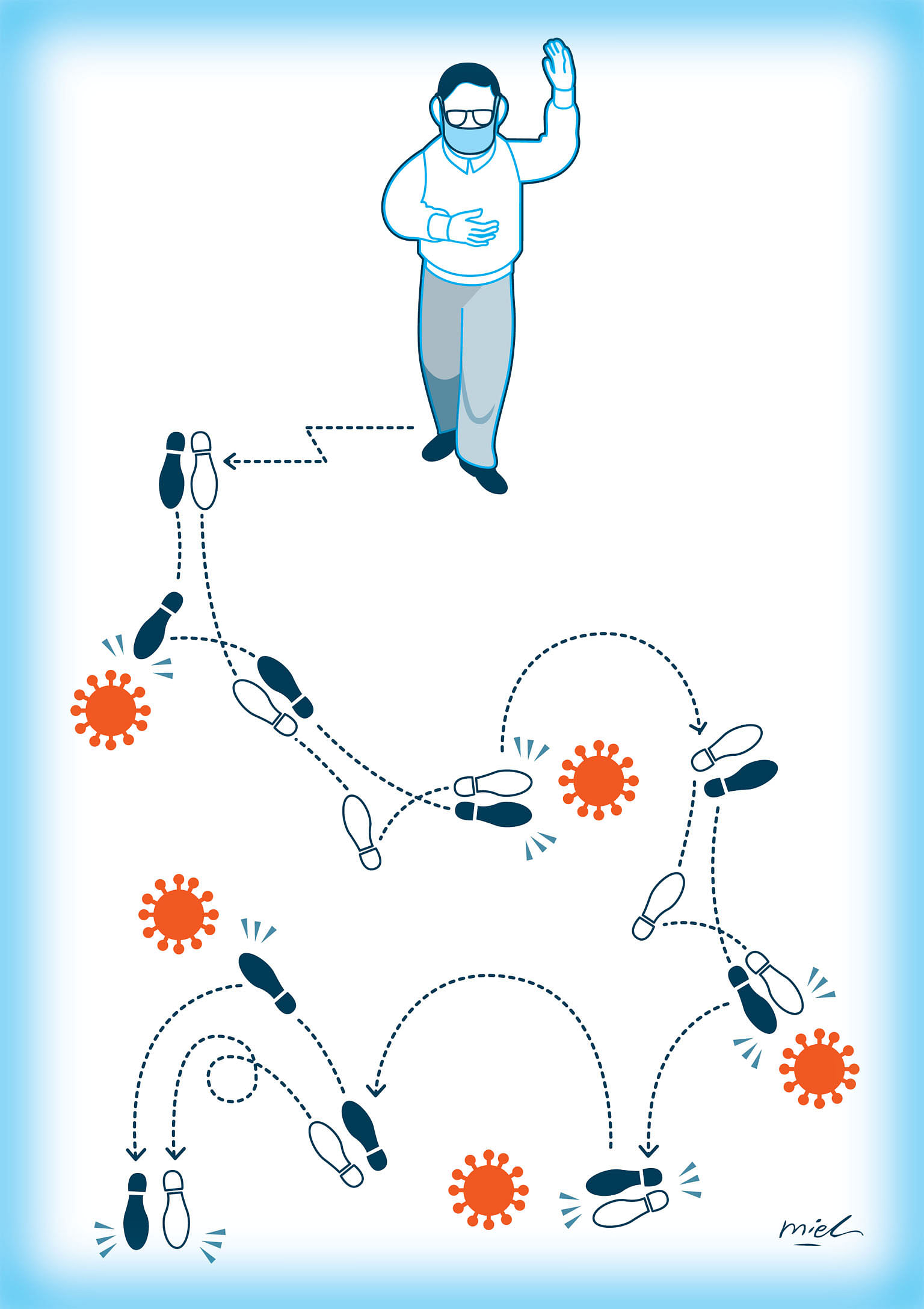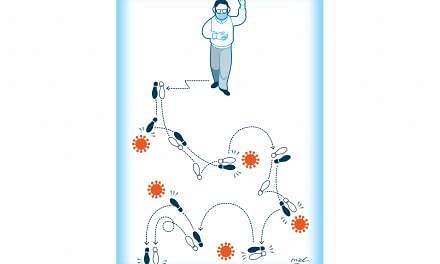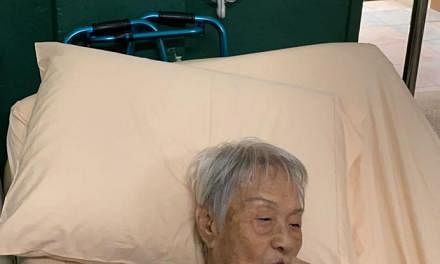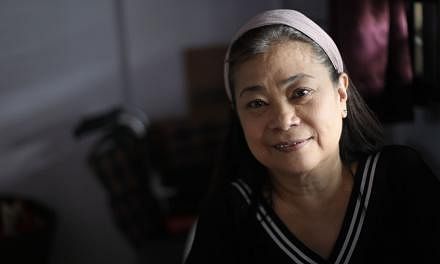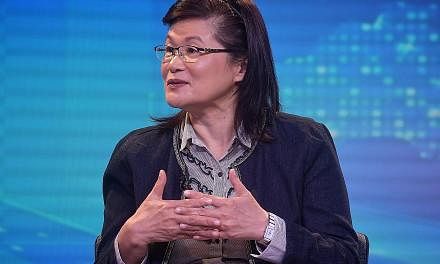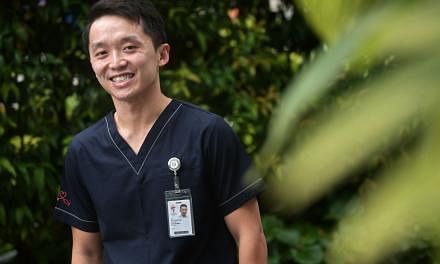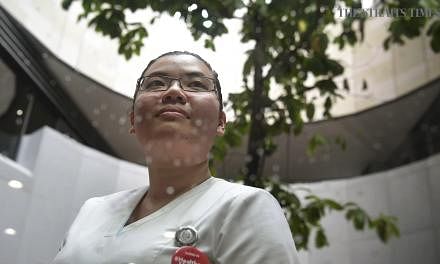Remember these words: "To see what is to come, look to Lombardy, the affluent Italian region in the heart of the Covid-19 outbreak in Europe.
"Its hospitals provide world-class healthcare. Until last week, they thought they would cope with the disease - then waves of people began turning up with pneumonia."
This haunting refrain to "look to Lombardy" has lingered in my mind since I came across it in an editorial in The Economist on March 14, when the pandemic was gaining pace around the world.
Like an oracle, the article declared: "All governments will struggle. Some will struggle more than others."
The words have proved prescient, for in a sense, from Italy to Indonesia, South Korea to Singapore, we are all Lombardy now, grappling with a deadly coronavirus that is straining healthcare systems and ravaging economies everywhere, with some faring better than others.
This weekend marks 100 days since the virus appeared in Singapore, weeks after people began turning up in hospitals in China amid a strange outbreak of pneumonia.
Along the way, there have been twists and turns, ebbs and flows, in this unfolding story. So whereas Singapore was initially hailed as the "gold standard" of how to beat the virus - its good healthcare, efficient and effective containment, trusted leaders and institutions widely cited by world leaders and the global media - it is now being pointed to as a "cautionary tale" of how even the best organised efforts to check the virus might be caught off-guard. A "smart" and merciless foe, the coronavirus has shown it is adept at seeking out kinks and blind spots in a society's defences, targeting these for its next waves of attack.
But just as the rush to judgment then was premature, so too is it now, for we are by no means finished with this surreal saga playing out around the world. Even as they spoke yesterday about a gradual easing of some of the circuit breaker measures over the next weeks, ministers were at pains to emphasise that the fight against the virus will be a long one, to be sustained over many months.
Along the way, we must expect more shocks and surprises in the weeks and months to come, not only on the healthcare, but also on the economic, social and political fronts, just as there have been over the past weeks.
Indeed, let's be clear on this: The surge over the last month in the number of infections in Singapore, largely in densely populated dormitories that house foreign workers, was a blind spot for all of us. Few saw it as the most pressing area to focus on, although some are now claiming so, with ever-perfect hindsight.
In the run-up to the introduction of Singapore's circuit breaker measures on April 7, public attention was focused instead on the spread within the community, in churches and mosques, hospitals and old folks' homes, childcare centres and large social gatherings, as well as the wave of imported cases from Singaporeans returning home. It was only later that foreign worker dormitories emerged as an area of concern.
Let's not be hypocrites: To suggest that prior to the outbreak in the dormitories, there would have been widespread public support for the need for the authorities to move into those privately run facilities, taking them over and thinning them out, to resettle thousands of sick foreign workers in hastily set-up facilities, from floating hotels to exhibition halls and even Housing Board flats, is fanciful at best, or at worst, disingenuous.
Let's be honest: It could take many weeks, but eventually, the time will come when these unfortunate workers will be able to return to their usual dwellings. But given that many of the dormitories have all but been nationalised in a determined effort to bring the outbreak there under control, returning to the status quo ante might well be nigh impossible.
Hopefully, we as a society have learnt the hard way that we have to do better by them, improving the conditions in which they are housed. Doing so would mean everyone accepting that more dormitories will have to be built, closer to our own homes, and at considerable cost, which will inevitably have to be passed on to you and me, in the form of higher charges for just about everything, from housing to the everyday services we depend on.
No doubt, the usual howls of protest will arise, from the not-in-my-backyard crowd wanting more dormitories but only if they are built elsewhere, or from those supporting calls for more foreign workers for businesses while lamenting the large numbers that need to be provided for, and from others demanding better-quality services so long as someone else picks up the tab.
If we as a society are to be clear-headed, honest and non-hypocritical, these voices will have to be countered. But that, as they say, is a battle for another day. With a general election on the cards, that day might come sooner than some might like.
For now, though, Singaporeans, who have been confined to barracks for weeks, will have to put on their dancing shoes.
Singapore has enjoyed some success in what experts have called the "hammer and dance" strategy. This refers to the use of aggressive measures - think quarantines, contact tracing and lockdowns - to hammer down the virus. This is now being followed up with a delicate dance, where society tiptoes out, gingerly easing up on some restrictions, to try to return to some semblance of normalcy.
Indeed, around the world, we are all dancers now, twisting and turning to the doleful music that seems to play on and on.
Consider South Korea, which drew much flak initially when it struggled to get a massive outbreak in a church community under control, but which has now emerged as the latest poster boy of how to test for, track and tame the virus. Yet, it too is treading nervously over a long holiday weekend wondering if the virus will spring forth again as people start to roam about the country.

Or look to Lombardy, and Italy as a whole, once dubbed the new epicentre of the outbreak, after China. It has since been overtaken by Spain and the United States in terms of the number of virus cases and deaths.
In recent weeks, like many others, the Italians have announced tentative steps to emerge in gradual stages from a state-enforced, nationwide lockdown, peering around anxiously for any signs of further waves of people turning up at hospitals with infections, forcing others to retreat once again into their homes.
By all accounts, we must be prepared to keep up this deadly dance in the months to come. There will be highs and lows, moments when hopes are raised that things seem to be coming under control, only to be dashed by new clusters surging forth and tripping the circuit breaker all over again.
This will test Singapore like never before, so used are we to having things go according to plan.
Given the globally connected, affluent lives we have all grown used to, we are understandably averse to being "cabined, cribbed, confined, bound in, to saucy doubts and fears", to borrow the words of William Shakespeare.
Given how we have been told over and over again, and come to believe, that Singapore is special, a place where things are supposed to work, we have become somewhat allergic to shocks and setbacks.
Cruelly, however, Covid-19 is reminding us that to be special demands effort on our part; that freedom is not free, as rights (even to go out of our homes) carry responsibilities; trust has to be earned and never abused if it is to be called upon when needed; discipline is not something that can be summoned on demand, but has to be willed and lived out, day after plodding day.
Singapore did not become "special" simply by wishing it or sloganeering it into reality. Nor was it because we were smarter, richer, or somehow superior to others around us.
Rather, an earlier generation of Singaporeans earned that reputation the hard way, by self-sacrifice and sheer will, doggedly pressing on and pulling together, especially when the going seemed tough. Today's generation is challenged by the present crisis to live up to that legacy.
Let's not pretend: Even once we have beaten back the virus, the challenge of re-emerging from our respective retreats to pick up the pieces of our battered economy will be enormous and daunting. The debate on when and how best to do so will be intense and fraught, given that there will be no easy textbook answers.
Indeed, a sign of things to come might be seen in a recent article by the Financial Times columnist Martin Wolf, in which he grapples with the issue of whether there is an appropriate trade-off to be made between saving lives and safeguarding livelihoods, a dilemma many are pondering, here and elsewhere.
Pointing to a recent University of California, Berkeley study, he said: "Yes, persisting with the lockdown until the disease has been brought to really low levels imposes big economic costs now. But it must also be seen as an investment, whose fruits will be a more tolerable future."
Just what might that "more tolerable future" look like? And what will we need to do to reshape our businesses, industries and society for this brave, new post-pandemic world?
Well, the most honest and clear answer I have come across so far comes from Mr Wolf again, in a separate piece last month: "We do not know what the pandemic has in store or how the economy will respond. We do not know what we must do to get through this terrifying upheaval with the least possible damage.
"We must bring this disease under control. We must invest massively in systems for managing it after the current lockdowns end. We must spend whatever is needed to protect both our people and our economic potential from the consequences.
"We must help the billions of people who live in countries that cannot help themselves unaided. We must remember above all else that in a pandemic no country is an island.
"We do not know the future. But we do know how we should try to shape it. Will we? That is the question. I greatly fear our answer."
Mr Wolf was writing about the United Kingdom. But that indeed is the question for us here in Singapore too.
Do we know our answer? Can we be a little more sanguine than he, knowing that we have it in us to, once again, summon up the collective wit and will to shape the future, by pulling together, not turning against one another, or giving in to doubts and divisions, both those inherent within as well as instigated from without?
That is the Covid-19 test, of the past 100 days and many more to come, for today's generation of Singaporeans. How we fare is up to us.

